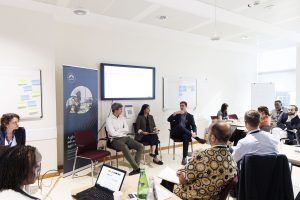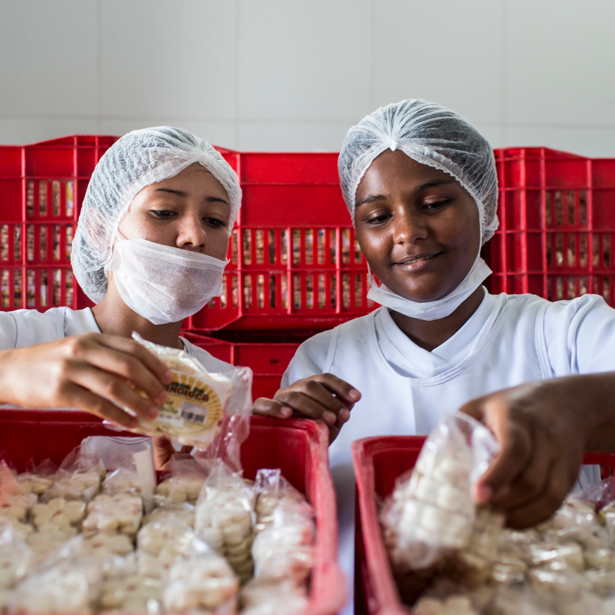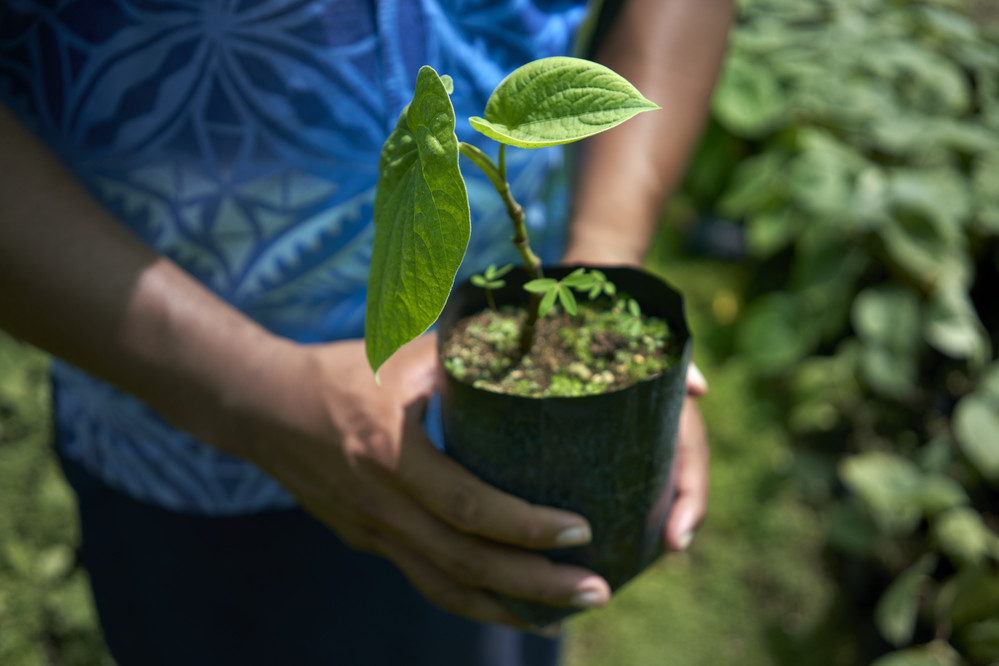As small and medium-sized enterprises worldwide navigate a delicate financial landscape, experts from the agriculture and financial sectors met at the 2023 Annual Plenary Meeting of the Smallholder and Agri-SME Finance and Investment Network (SAFIN) to chart a collective path for inclusive access to capital.
___
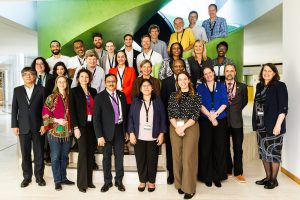
SAFIN partners and guest participants at the Annual Plenary Meeting 2023
“Closing the financing gap for agribusinesses is largely a question of allocation, not lack of funds. The estimated 200-billion-dollar shortfall in their financial needs amounts to only 5% of assets under management by pension funds in the United Kingdom alone.”
Sanne Steemers, President, Rest of Africa at AFEX, is one of many agricultural finance leaders who attended this year’s meeting at the headquarters of the International Fund for Agricultural Development (IFAD) in Rome, Italy. Like Sanne, experts from 26 institutions at the event on 30-31 October confirmed that cross-stakeholder collaboration is no longer ‘nice-to-have’ but essential to fostering functional ecosystems that meet the needs of agricultural SMEs.
Centered around the theme ‘From shared knowledge to collective action,’ the meeting celebrated SAFIN’s recent success in aligning diverse institutions around common recommendations and best practices while emphasizing a move towards more joint ventures to address coordination gaps in the fragmented sector.
The plenary sessions covered several important topics from the network’s priorities, including the current state of the sector, climate finance, the role of farmer organizations, and agri-SME investment during global crises. During the event, SAFIN also welcomed two new institutions to its network – the Norwegian Agency for Development Cooperation (NORAD) and the Centre for Agriculture and Biosciences International (CABI). Some key takeaways from the discussions are shared below.
Mainstreaming systemic approaches
Agri-SME finance has historically been a niche segment of the agricultural finance sector, but in recent years, the role of SMEs has progressively moved into the mainstream of global policy forums, media coverage and investments by both public and private players. While this hard-won progress should be celebrated, one sentiment was echoed throughout the event—investments into individual agri-SMEs alone cannot effectively influence the systemic issues faced in the sector. Greater coordination across the sector, peer-to-peer learning across institutions and joint initiatives that target the structural challenges that SMEs face in accessing finance are critical to close the glaring capital gap.
‘What gets measured, gets financed’
Climate finance towards agriculture currently lags behind other sectors, in part due to the lingering lack of a shared definition and impact indicators. SAFIN members discussed the current data needs and reporting requirements to bring more climate funds within the reach of agricultural enterprises, including farmer organizations. While the cost of data collection is too high to rest on the shoulders of these enterprises, the emergence of tech solutions that capture the impact of climate-smart techniques presents an opportunity for the providers, enablers and receivers of climate finance in agriculture.
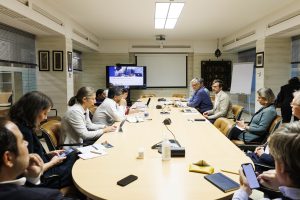
SAFIN members share insights during a “Peer Designed Venture” session focused on farmer organizations.
Building capacity at the grassroots level
Following a recent study on the financing needs of farmer organizations, IFAD is currently in the pre-design phase of a platform to increase their access to finance. SAFIN members offered inputs to inform its design, such as a need to focus on recurring challenges across organizations in various regions, including staffing and digitization of service delivery. However, a representative of farmer organizations cautioned that technical assistance accompanying such funds should focus on building their capacity, first to access and manage finance, and then to independently monitor their impact using responsive indicators that reflect the reality of small-scale farmers.
Hayden Aldredge of ISF Advisors, and Atisha Kumar and Alexandre Kaufmann of FAO lead the discussion on agri-SME finance in sub-Saharan Africa during multiple crises.
Future-proofing finance in a time of crisis
In a session uncovering the responses of financial institutions, agricultural enterprises and governments in Africa to the global ‘poly-crisis’, sector experts traded views on a ‘Crisis Response Toolbox’ for various players to ensure the unfettered flow of capital during future crises. Potential areas of focus can include local incentives for loan structuring, capital injection grants for specific commodities or inputs like fertilizer, and returnable grants for key value chain actors. However, the role of governments in enacting timely policy changes and incentives for other actors during the onset of crises was emphasized as a critical piece for effective responses across the sector.
Are you are SAFIN member? Log-in to watch the session recordings and share your plenary highlights.
